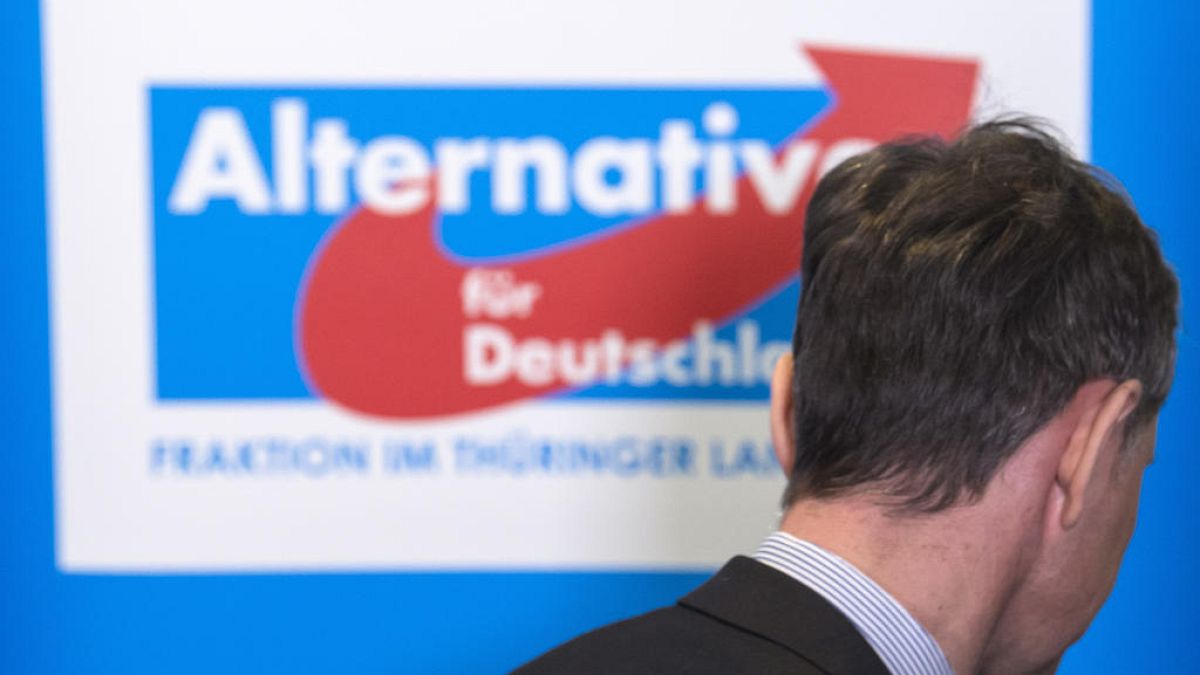The proposal sparked an instant - and fierce - outcry from across the political spectrum.
It was a rapid U-turn.
In less than 24 hours, the president of Germany's conservatives backtracked on suggestions they could cooperate with the far right locally.
The plan provoked a sharp outcry within the party's own ranks, besides those from across the political spectrum.
Cooperation with the far-right has provoked hostility from Germany's traditional parties, since the days of the Third Reich.
On Sunday, Friedrich Merz appeared to want to break this tradition and reach out towards the anti-immigrant Alternative for Germany (AfD).
"If a councillor, a mayor, is elected and he belongs to the Alternative for Germany, it is natural that we have to look for ways to ensure that we continue to work together in this city," he said in an interview with the ZDF television channel.
The president of the Christian Democratic Union (CDU) - former chancellor Angela Merkel's party - made the comment in reference to the AfD's electoral success.
It recently managed to elect its first mayor, as well as take the head of a district council.
But these statements immediately provoked strong reactions amongst the conservative ranks, especially several heads of regional governments.
The party has adopted a motion which excludes any cooperation with the extreme right.
Merz's comment caused greater concern as it came on the day of the parliamentary elections in Spain, where an alliance between the traditional right and the ultra-nationalist Vox party was on the cards.
"The AfD only knows opposition and division," said Berlin mayor and CDU member Kai Wegner, who governs with the Social Democrats in this regional city-state.
The head of the Bavarian government, Markus Söder - chairman of the CDU's sister party, the CSU - rejected any cooperation with the AfD "no matter at what political level".
The AfD is "undemocratic, far-right and divides our society," Söder said on Twitter.
Regional elections are scheduled in Bavaria next October.
For Nils Diederich, professor at the Free University of Berlin, Merz's U-turn "shows how much he does not know what strategy to adopt against the AfD".
However, he notes: "A more populist attitude from the CDU will do absolutely nothing for this formation because voters will always prefer the original to the copy."
The AfD, created in 2013, has experienced a spectacular rise for several months in opinion polls, now pointing to second position at the national level.
This puts it in front of the Social Democratic Party of Chancellor Olaf Scholz and just behind the conservatives.
A record 22% of people express an intention to vote AfD in an Insa poll published Sunday by the daily Bild - twice as much as a year earlier and only four points from the Conservatives (26%).
The far right is taking advantage of the dissatisfaction of part of the public with the current government coalition, made up of social democrats, ecologists and liberals, besides inflation and immigration.
